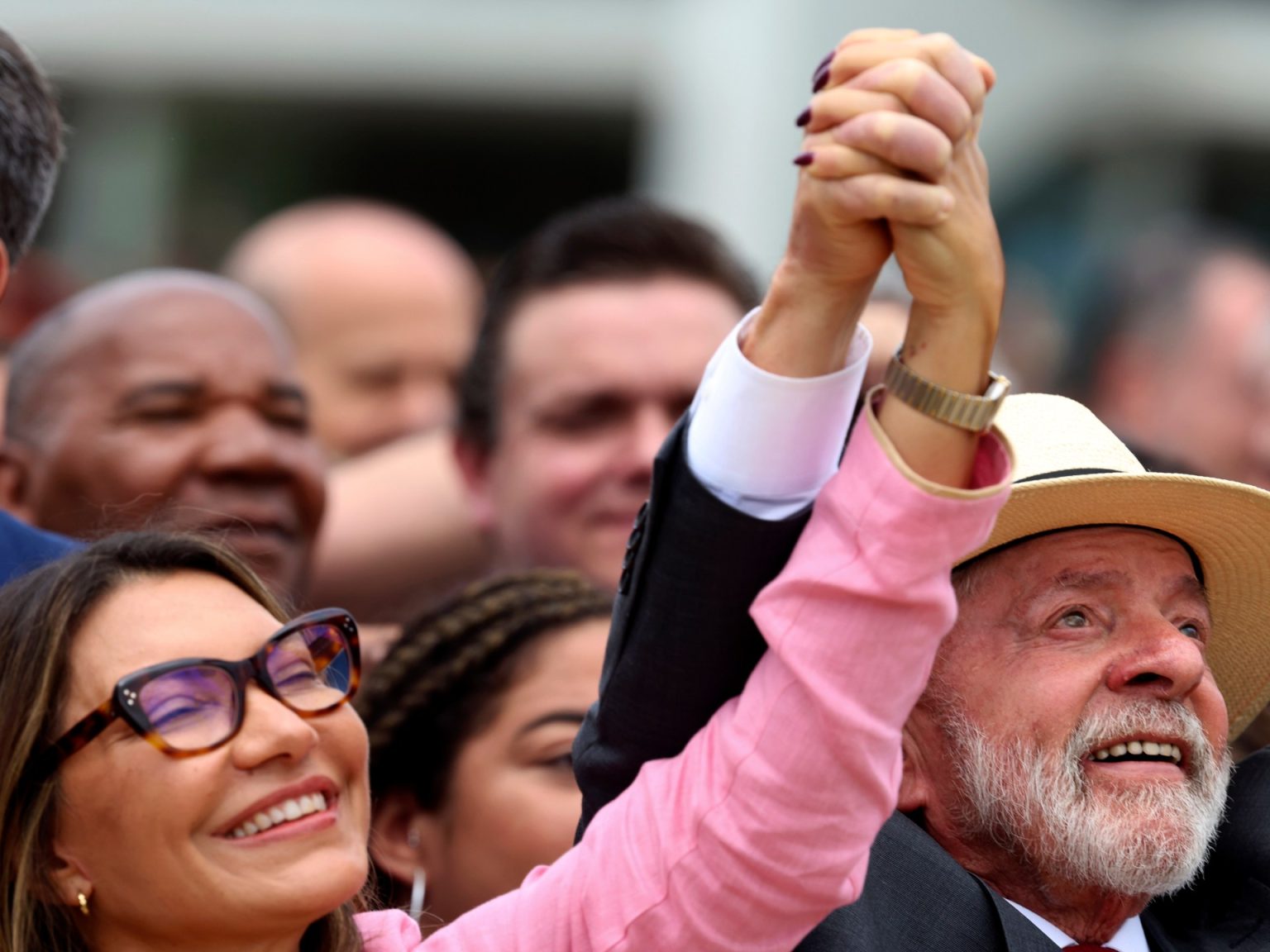Two years after a violent assault on Brazil’s democratic institutions, President Luiz Inácio Lula da Silva stood defiantly in the very plaza where the chaos unfolded, proclaiming the resilience of democracy and condemning the events of January 8, 2023, as a coup attempt against his presidency. The attack, which targeted the presidential palace, the Supreme Court, and Congress, occurred just a week after Lula’s inauguration for a non-consecutive third term, a victory hard-won against the backdrop of a deeply divisive political climate. Lula, recovering from recent brain surgery, addressed his supporters, emphasizing the symbolic importance of his presence: “We’re still here,” he declared, a testament to the survival of democratic principles in the face of extremist violence. He reiterated his commitment to upholding the democratic process, a process that had been strained and tested by the events leading up to and following the January 8 attack.
The backdrop to the January 8 attack was a contentious presidential election marked by misinformation and political polarization. Incumbent President Jair Bolsonaro, a far-right figure, had consistently sown doubt about the integrity of Brazil’s electronic voting system, laying the groundwork for widespread distrust in the electoral process. As the election drew closer, Bolsonaro’s rhetoric intensified, fueling anxieties and suspicions amongst his supporters. His narrow defeat to Lula, by a margin of just over two million votes, further exacerbated these tensions. Bolsonaro refused to concede defeat, echoing the unfounded claims of electoral fraud he had propagated throughout the campaign. This refusal to accept the democratic outcome of the election ignited protests across the country, with Bolsonaro’s supporters blocking highways, clashing with law enforcement, and even resorting to bomb threats in the capital, Brasilia, in the days leading up to Lula’s inauguration.
The culmination of this charged atmosphere was the January 8 attack, a coordinated assault on the symbolic heart of Brazilian democracy. Thousands of rioters, fueled by Bolsonaro’s rhetoric and their belief in a stolen election, stormed the government buildings, causing extensive damage and injuring numerous law enforcement officers and protesters. Their objective, according to many accounts, was to incite a military intervention against Lula’s newly established presidency. While the coup attempt ultimately failed, it left a deep scar on Brazil’s political landscape, exposing the fragility of democratic institutions in the face of extremist ideologies and disinformation campaigns. The attack underscored the urgent need to address the underlying causes of political polarization and to strengthen the safeguards protecting democratic processes.
In the aftermath of the attack, Brazilian authorities launched investigations into the events of January 8 and the individuals responsible. Former President Bolsonaro, who had left Brazil for Florida before Lula’s inauguration, became the focus of multiple legal proceedings and investigations. These inquiries examined his role in disseminating misinformation about the election, his potential connections to the attack on government buildings, and allegations of embezzlement and spreading misinformation during the COVID-19 pandemic. In a significant legal blow, Brazil’s electoral court barred Bolsonaro from running for office until 2030, citing his misuse of government resources to undermine public trust in the voting system. Furthermore, federal police accused Bolsonaro and dozens of his allies of conspiring to overturn the 2022 election results, a charge that awaited a decision from the prosecutor-general.
Despite the ongoing legal challenges, Bolsonaro maintained his public presence, using social media to communicate with his supporters and assert his political relevance. He claimed to have received an invitation from then-U.S. President-elect Donald Trump to attend his inauguration, requesting the return of his confiscated passport to travel to Washington, D.C. This request, directed to Minister Alexandre de Moraes, highlighted the ongoing legal restrictions imposed on Bolsonaro as a result of the investigations surrounding his activities and conduct.
President Lula’s commemoration of the second anniversary of the January 8 attack served as a powerful reaffirmation of Brazil’s commitment to democracy. His presence in the Three Powers Plaza, the very site of the attempted coup, symbolized the resilience of democratic institutions and the determination to uphold the rule of law. Lula’s message was clear: democracy had survived the assault, and the pursuit of justice for those responsible would continue. The event also served as a reminder of the ongoing challenges facing Brazil’s democratic process, the need to combat disinformation and extremism, and the importance of safeguarding the integrity of elections. The legacy of the January 8 attack continues to shape Brazil’s political landscape, prompting reflection on the vulnerabilities of democratic systems and the ongoing efforts required to protect them.

